Debate on the African Growth and Opportunity Act continues
The African Growth and Opportunity Act (AGOA) received critical support on Wednesday as the U.S. Senate Finance Committee approved renewal legislation for a vote on the floor. Describing this landmark at an AGOA hearing this week, Senator Johnnie Isakson (R-GA) stated Africa “will be the principal continent of this century for America in terms of trade, profitability, and partnership.” Though the current version of the bill seems to be moving forward quickly, proposals on how to improve the legislation are still very much under consideration. Earlier this week, Senator Debbie Stabenow (D-MI) tabled Amendment Number 2 to the Senate’s AGOA Extension Act, along with co-sponsor Senator Pat Roberts (R-KS), which aims to expand American agricultural trade technical assistance to African countries, along with improving the coordination of the many U.S. government agencies with mandates on trade, investment, and capacity building in Africa. Despite the potential of agricultural production to support development in the region, key obstacles have prevented the sector from fully benefiting from AGOA preferences. For example, compliance with U.S. sanitary and phytosanitary (SPS) measures is challenging for many African businesses and, as a recent Brookings brief by fellow Joshua Meltzer on how to resolves these difficulties concludes, “raises the cost of African exports enough to offset any additional competiveness gained through lower tariffs.” The Finance Committee also approved Senator Stabenow’s AGOA amendment as part of its mark up on Wednesday.
March against xenophobic violence in South Africa
On Thursday, an anti-xenophobia march occurred in South Africa’s commercial capital of Johannesburg, with nearly 30,000 people rallying in support of efforts to end the country’s sudden outbreak violence against foreigners. The rally marked a high point of recent efforts to quell the unrest, which has purportedly resulted in the death of seven individuals, the displacement of 5,000 others, and huge amounts of property damage. Many observers have identified the remarks by King Goodwill Zwelithini as the initial impetus for the violence, when he as head of the country’s Zulu community publically compared foreigners to “lice” and called for their immediate removal from South Africa. While Thursday’s march could have a positive impact on the crisis, many continue to bemoan what is viewed as the “emotionless” efforts of President Jacob Zuma to address rampant xenophobia in South Africa.
Time Magazine acknowledges seven Africans among its list of the 100 Most Influential People in the World
This week, Time published its annual list of The 100 Most Influential People in the World, where the magazine recognizes people who are known for changing the world, regardless of the consequences of their actions. The 2015 list features a wide variety of individuals ranging from Nobel Prize Winner Malala Yousafzai to Apple CEO Tim Cook. This year, Time also features seven nationals of African countries, four of whom are Nigerians.
Nigerian president-elect Muhammadu Buhari was included and made history last month when he became the first candidate to democratically take over the country’s leadership from an incumbent of an opposing party. Nigerian activist Obiageli Ezekwesili, former World Bank vice president for the Africa region and founder of the #bringbackourgirls campaign, also earned a place on the list. In a moving speech during the Time 100 gala, she reiterated the need to increase efforts towards finding the school girls abducted by Boko Haram last year. The third Nigerian national on the list is New York Times best-selling author Chimamanda Ngozi Adichie. At the age of 37, she is becoming one of the key figures of African literature; her books have been translated into more than 30 languages and have sold over a million copies. The fourth Nigerian, and one of most controversial entrants on the Time 100 list this year, is Boko Haram leader Abubakar Shekau. Time describes him as “the most violent killer their country has ever seen.” Other Africans included were Sudanese aid worker Mustafa Hassan, Liberian Ebola doctor Jerry Brown, and Tunisian President Beji Caid Essebsi.
The challenge of protracted displacement in the Great Lakes region
On Tuesday, April 21, the Brookings-LSE Project on Internal Displacement and the World Bank hosted an event entitled “Africa’s Great Lakes region: A development response to forced displacement,” which assessed the current status of forced displacement throughout the region, as well as national and international efforts to provide humanitarian assistance and durable solutions for internally displaced persons (IDPs). Stacey White, a humanitarian policy expert and author of the recent report “Now What? The International Response to Internal Displacement in the Democratic Republic of the Congo,” noted that nearly 2.7 million of the region’s 3.3 million IDPs are located in the Democratic Republic of the Congo (DRC), where the security situation remains volatile in many areas. Twenty to 40 armed groups still operate within the country, and some observers expect an increase in violence surrounding the November 2016 general elections, given the current tense political climate. Over the past decade, the international community has invested approximately $5.5 billion in sustained humanitarian engagement, but little has been achieved with respect to finding durable solutions for IDPs—in terms of their return, local integration or resettlement to other parts of the country—due to the persistent insecurity. Going forward, White and fellow panelists Joanna de Berry and Cordelia Chesnutt from the World Bank suggested that national governments and international actors pay more attention to integrating IDPs to broader development plans for the region, specifically focusing on expanding economic, political and educational opportunities for IDPs and providing them with access to psychosocial support and medical services.
The Brookings Institution is committed to quality, independence, and impact.
We are supported by a diverse array of funders. In line with our values and policies, each Brookings publication represents the sole views of its author(s).

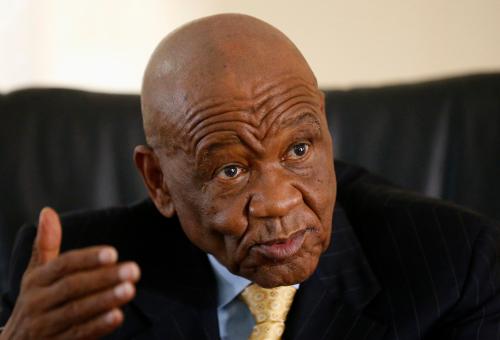
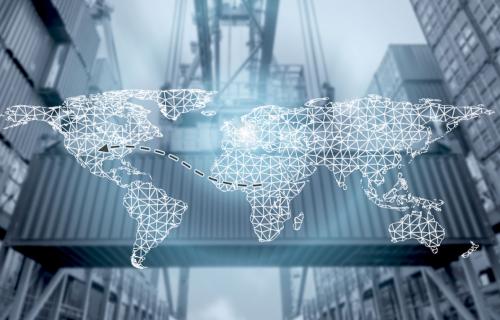
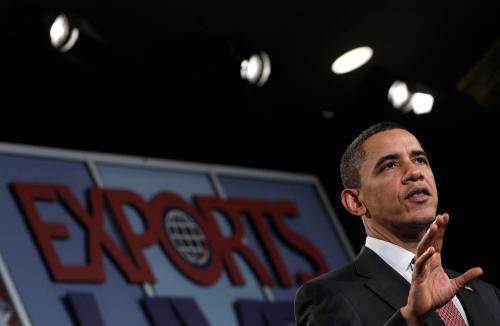
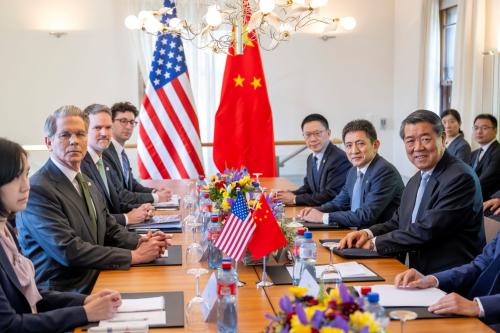

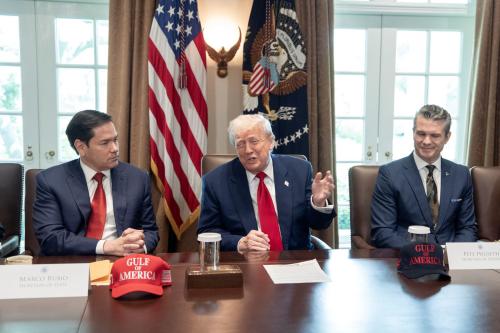
Commentary
Africa in the news: AGOA debate continues, Time’s list of the ‘100 Most Influential People in the World,’ a march against xenophobia in South Africa, and protracted displacement in Great Lakes region
April 24, 2015